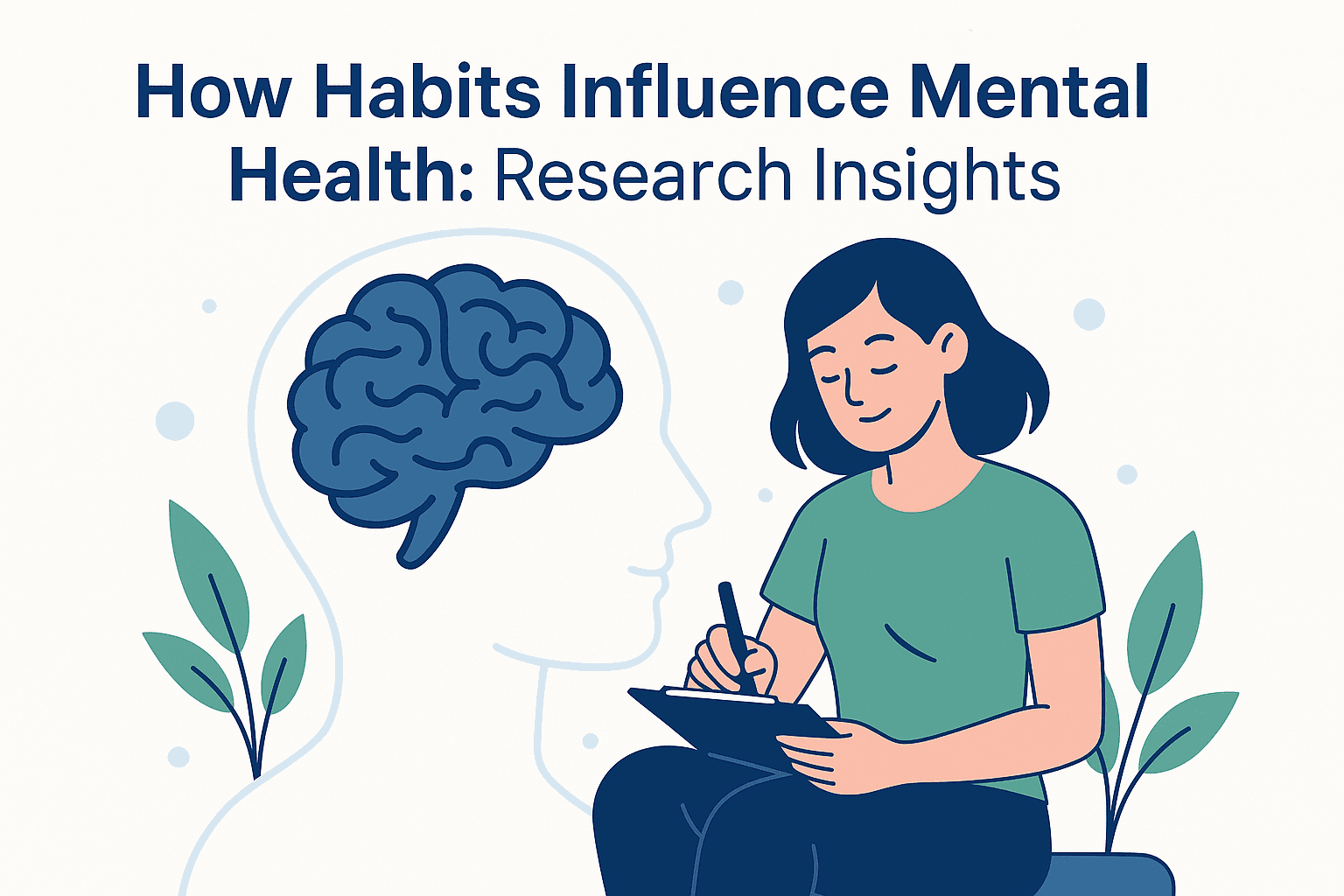
Habits Influence Mental Health

TL;DR
Daily habits significantly shape mental health. Establishing positive routines like regular exercise, mindfulness, and social connections can enhance well-being, while negative habits may contribute to mental distress. Understanding and intentionally shaping our habits is crucial for mental health.
The Connection Between Habits and Mental Health
Our daily routines have a profound impact on our mental well-being. Engaging in positive habits can enhance mood, reduce stress, and promote overall psychological health. Conversely, negative habits may contribute to mental health challenges.
Positive Habits That Boost Mental Health
-
Regular Physical Activity: Exercise has been shown to reduce symptoms of anxiety and depression. Engaging in activities like walking, cycling, or yoga can release endorphins, which are natural mood lifters.
-
Mindfulness and Meditation: Practicing mindfulness helps increase self-awareness and emotional regulation. Techniques such as meditation can decrease stress and improve overall mental clarity.
-
Adequate Sleep: Establishing a consistent sleep schedule supports cognitive function and emotional stability. Lack of sleep can exacerbate mental health issues, making it essential to prioritize rest.
-
Healthy Eating Patterns: Consuming a balanced diet rich in nutrients supports brain health. Diets high in processed foods and sugars have been linked to increased risk of depression.
-
Social Connections: Building and maintaining strong relationships provides emotional support and reduces feelings of loneliness. Engaging in community activities or regular social interactions can enhance mental well-being.
Negative Habits That May Harm Mental Health
-
Excessive Screen Time: Spending prolonged periods on digital devices, especially on social media, can lead to increased anxiety and depression. Setting boundaries for screen time is crucial.
-
Substance Abuse: Relying on alcohol or drugs as coping mechanisms can negatively impact mental health and lead to dependency issues.
-
Poor Stress Management: Neglecting stress-relief practices can result in chronic stress, which adversely affects mental health. Incorporating relaxation techniques is beneficial.
Strategies to Cultivate Positive Habits
-
Start Small: Begin with manageable changes to avoid feeling overwhelmed. For example, commit to a 10-minute daily walk.
-
Set Clear Goals: Define specific, achievable objectives to guide your habit formation process.
-
Seek Support: Engage friends, family, or support groups to encourage and motivate your progress.
-
Monitor Progress: Keep a journal or use apps to track your habits and reflect on improvements.
By intentionally developing positive habits and addressing detrimental ones, individuals can significantly influence their mental health and overall quality of life.